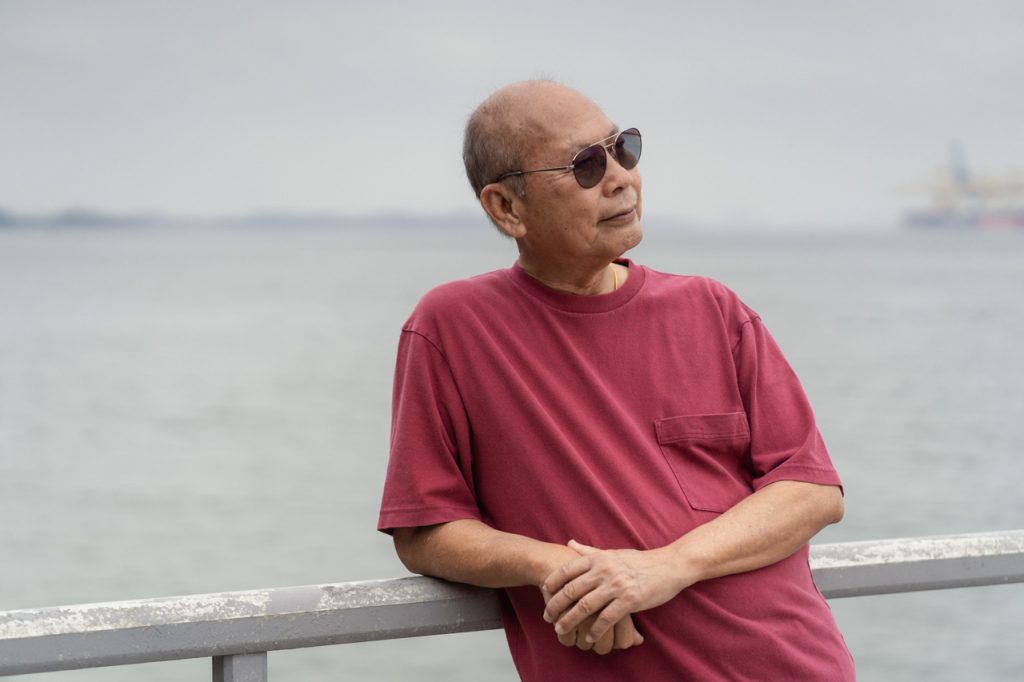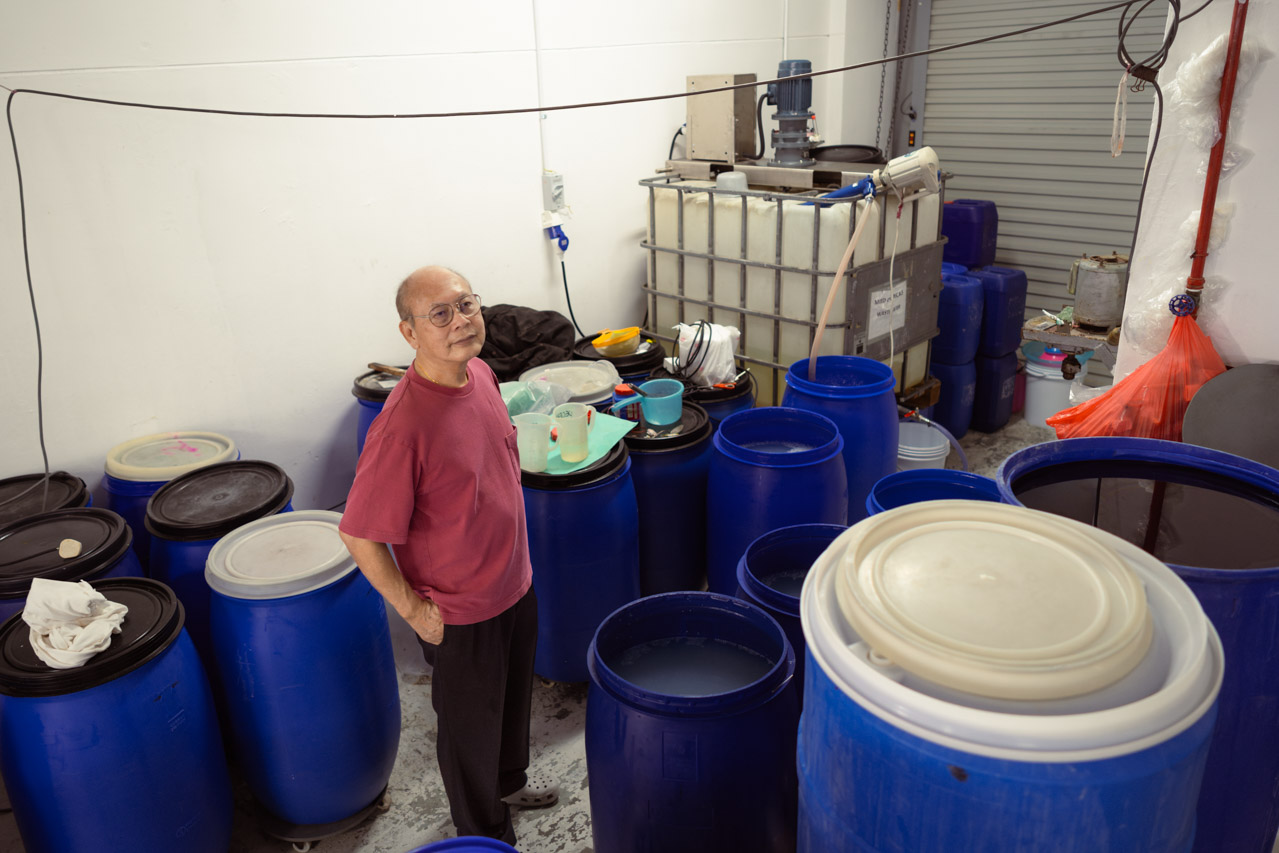All photos by Stephanie Lee for RICE Media.
Lawrence Tai’s day starts at 3:45 AM.
He wakes up, does some light stretching to warm up his body, takes a shower, and then prepares breakfast for his wife and himself. At 6:40 AM, he heads to work, where he loads up his van with over a hundred giant drums of liquid soap. For the next 11 hours, he’s busy with deliveries, meeting with clients and, if any, settling paperwork.
That’s been his routine for the past 40-odd years.
But when asked if the 75-year-old ever thought about retiring, his reply was simple: “I’m just getting started.”
Age in Shipshape and Bristol Fashion
Mr Tai has his sights set on his next venture.
He plans to take his passion for the seas and fishing to Batam, where he’ll bring and sell Indonesian crabs back to Singapore.
Mr Tai is a seasoned hobbyist fisherman, but he’s new to the crab business. Still, he’s got passion, time, money, energy, and a good buddy as his business partner.

He excitedly tells me about their plans: both have purchased accommodation in Batam and a van (one that’s currently rented out to a nearby hotel before the pair reclaims it for their business).
They plan on bringing wild-caught crabs into their crab pitstop and fattening them up over two to three weeks to make them fat and meaty before selling. Mr Tai’s buddy even has a list of potential clients he’s curated from years of networking in his old job.
Though the business idea only came to fruition sometime last year, Mr Tai has kind of spent his entire life preparing for this moment. He casually lists off the number of jobs he’s done, counting them off his fingers.
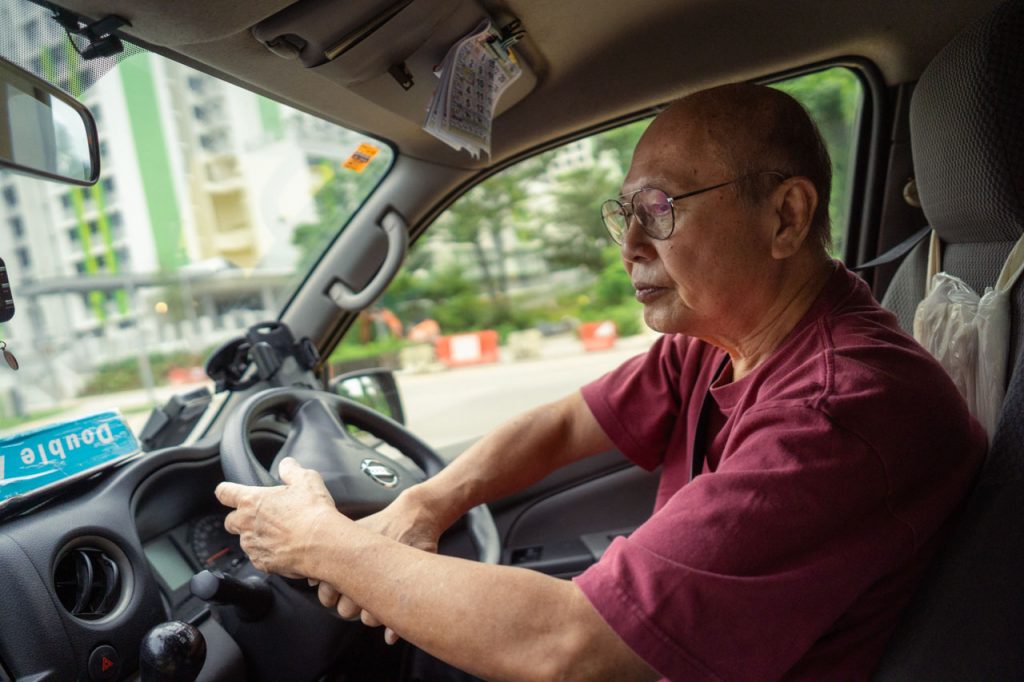
Back when he was a wee 16-year-old lad, he toiled in a shipyard for a year, earning a mere $3 a day. He then moved to work as a metal welder in a Japanese company, then under the Singapore Telephone Board, before getting called to serve in the army. After ORD, he pivoted to being a door-to-door salesman offering vacuum cleaners.
In those days, long tenures were the name of the game. So Mr Tai’s decision to job-hop and switch industries was seen as rather unorthodox by his friends. He confesses that he, like most of us today, did it for the dough. $3 a day wasn’t going to cut it. In fact, it was more like a travel allowance to get him to and fro the dock, so he sought whichever lucrative opportunity looked his way.
With each job came not just a handsome pay raise but also a new set of skills—welding, communications, marketing, and administration. By the time he started his own company in 1977, he was no longer “the kid with little education” but a well-and-proper businessman.
“I won’t say money is everything, but you can’t do anything if you don’t have money,” he says matter-of-factly.
His thought process was pretty clear-cut. Apart from finding ways to increase his earnings, he had to ration his expenditures while maintaining a steady inflow of income to have enough savings. Only then was he able to do the things he wanted: getting married, starting a family, and taking yearly holiday trips.
And now, after nearly 50 years as a company director and deliveryman, his foundation is set for his next phase in life. He recently sold most of his company shares and plans to sell the rest within the next year.
His only son is financially independent, and his wife still has her day job—he doesn’t have much else he needs to worry about paying off. He’s unfazed by the amount of money required to invest as capital for the crab business (at a handsome six digits), something he says he wouldn’t be able to afford if he had solely depended on CPF handouts.
Handouts are only enough to get by. His personal retirement fund is what’s funding his passions.
The sea beckons, and he’s finally ready to answer the call. To him, now’s the perfect time to embark on his next job.
Stationary Stones Covered in Moss
Financial Independence Retire Early (FIRE) is still the dream for many working adults. The idea of working past retirement age—and on a schedule as busy as Mr Tai’s—would make them baulk.
“At my age, you have to keep moving,” he explains. Moving and delivering nearly a hundred giant drums of liquid soap—each a whopping 25 litres—around town probably over-qualifies as a daily workout routine. But that’s just the way he likes it.
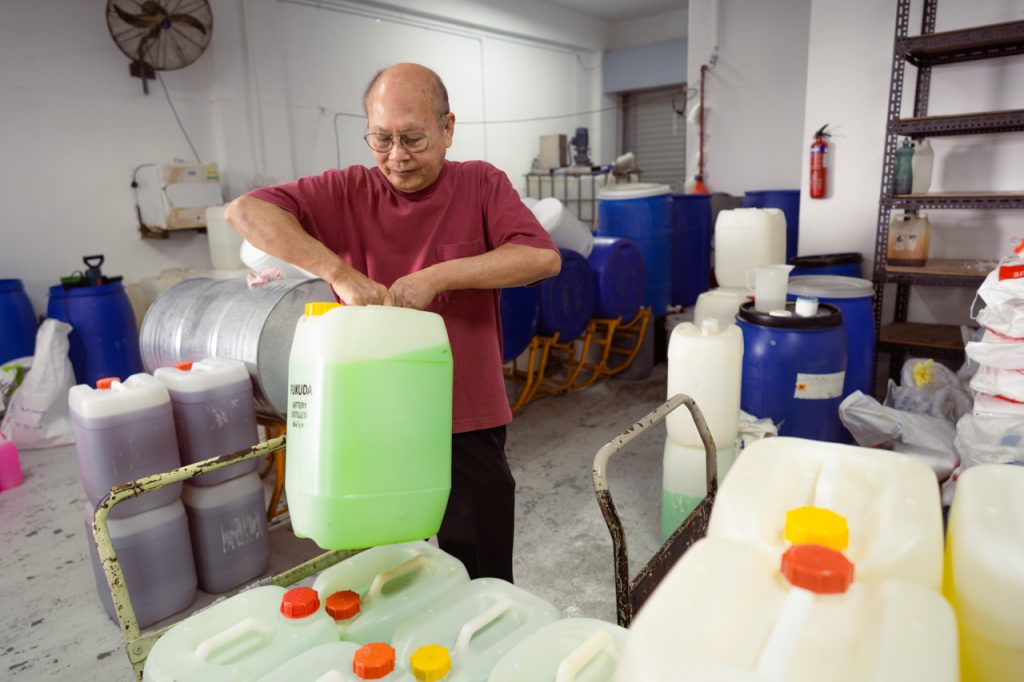
He’s proud as he tells me: “I keep my body moving, I keep my blood pumping. My brain is moving when I interact with my clients, I stay healthy.”
Even with his busy schedule, he makes it a point to catch up with friends and spend time with the family. He has breakfast and dinner with his wife almost every day, and they go on a family vacation with their son every year.
During the dry season, he’d go on monthly overnight fishing trips to Tanjung Pinang, the main town of Bintan, with his friends. Before the pandemic, his Friday nights were spent at the pub honing his dart-throwing skills under a dart league.
Like a rolling stone that gathers no moss, Mr Tai never wants to stop; he never wants to stagnate. He fears whenever the day he stops arrives, he’ll never get started again. If there’s one word that Mr Tai hates the most, it’s ‘lazy’—a pitfall of inactivity he’s seen many his age fall into once they decide to retire.
With a tinge of regret and bitterness, he shares how he lost a friend due to “laziness”. Post-retirement, he could only watch as that friend locked himself away at home, sitting in front of the television and doom-scrolling on his phone for hours on end because he was “too lazy” to go out and do something else.
The most this friend would do was head to the nearest coffee shop for his daily meals. He would otherwise reject Mr Tai’s offer to drive him elsewhere for a meal together. He developed pains in his legs, followed by various ailments, and ultimately passed away three years later.
Retirement depression is a dire problem among retirees, Mr Tai finds. What many believe to be a period of freedom and relaxation turns out to be a harsh reality check—that they have no purpose in life outside of work.
Idle days turn into stagnant days. Those unable to find new goals to strive towards start questioning if they’re meant to spend the rest of their lives like this.
His crab business partner had found retirement life so boring that he asked to join Mr Tai on his early-morning deliveries. Even that didn’t prove stimulating enough of a venture.
“He told me he wanted to do something more and proposed the idea of selling crabs. So I said, why not?”
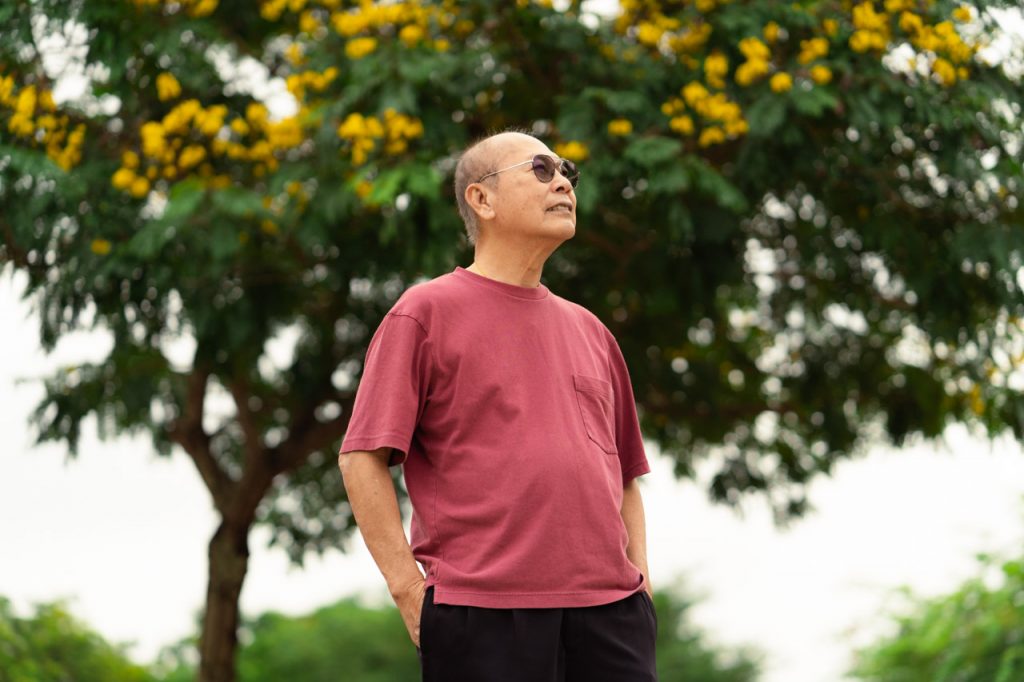
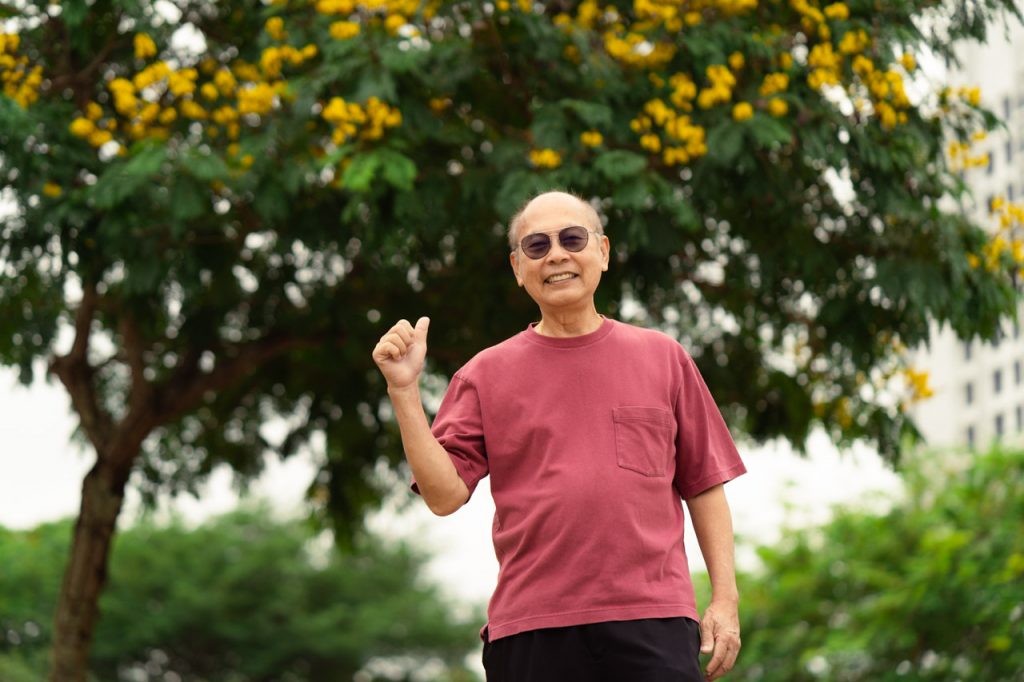
Expiry Dates, Expiry Age
Singapore raised the retirement age to 63 in 2022, and they plan to raise it even more by 2030. While these ages are nothing more than guidelines, many companies and individuals see it more as a deadline.
Most seniors who work probably had someone tell them they’re “old already”, which Mr Tai finds incredibly discouraging. To him, being a senior citizen only brings about one change—that he’s now eligible for more discounts. Age has been and will continue to be just a number, not an indicator of his value.
“You’re putting an idea into their heads that ‘Oh, because they’re old’, therefore they are this and that,” he huffs. “The only thing that matters is if you’re healthy and happy, and that’s got nothing to do with your age.”
Research by Income Insurance and Singapore Management University’s Centre for Research On Successful Ageing measured resilience across social, mental, financial, and physical domains—it reveals that social and physical resilience levels are lower among senior citizens.
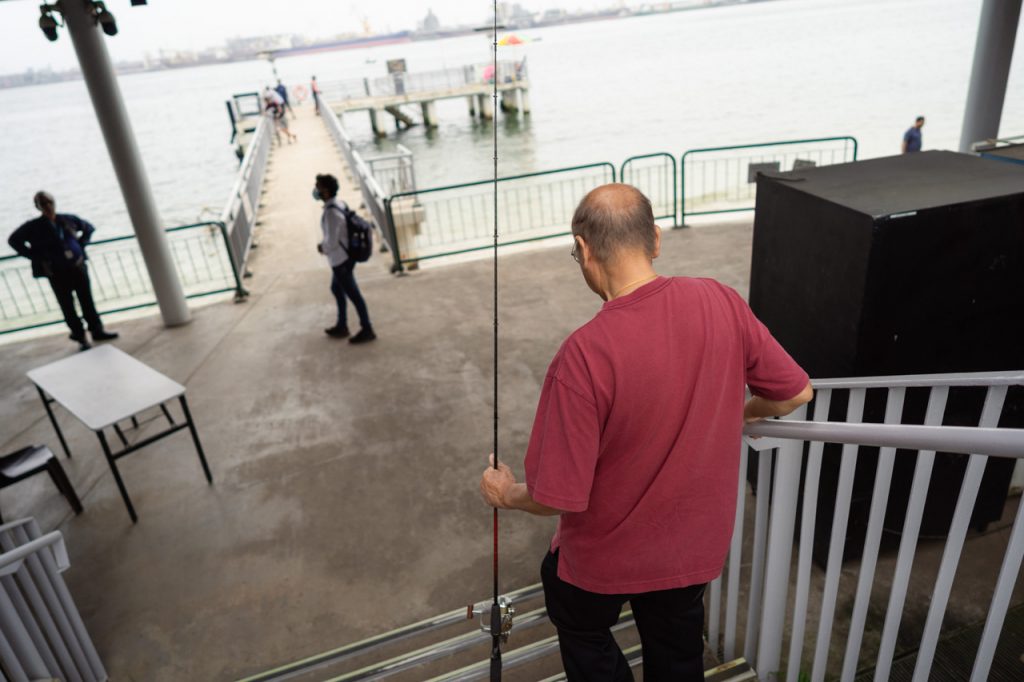
The study found that those above 55 showed the least social resilience and physical resilience, and those who were retired had lower access to financial resources that would boost their financial resilience. With increased age comes age-related physical declines, and transitioning from employment to retirement comes with a natural loss in income as well as social connections fostered within a workspace.
For Mr Tai, retirement almost feels like giving up—as though he’d have to submit to the belief he should slow down because the number of his age said so.
“I look ahead because there are things I want to do. I don’t want to give up now.”
Intentions Well-Intended
I bring up a different perspective to him: that, as children, we’ve always hoped our parents can retire earlier. After dedicating their lives to caring for us, they deserve to rest. They shouldn’t have to bear the burden of caretakers anymore, and they can now live their lives for themselves.

He acknowledges my perspective but makes a salient point: whether or not a senior wants to work is a decision only they can make.
It’s their right to autonomy of choice. Should we make that decision for them, it would be no different from conflating the label of a senior citizen to a person who no longer works (in all definitions of that phrase). The Ministry of Manpower doesn’t decide the retirement age; the senior citizens themselves do.
Even if they do feel they’re financially ready to retire, seniors still have to set their own post-retirement goals and commit, whether it’s going on walks to stay fit or meeting up with friends to stay socially active. As much as staying home to watch TV is one of the most cost-effective ways to live retirement, it’s not so cost-effective once stiff joints and an ailing body slaps hefty medical bills.
Social resilience is also something people would have to actively plan and work towards, and that usually involves stepping out of the house to engage with friends. Opportunities from people like Mr Tai’s crab business partner are, in fact, circumstantial—a result of relationships nurtured over time.
And despite what some might say about it being difficult to make friends at an older age, Mr Tai points out the different programmes organised by local communities—as well as community spaces within housing estates—are prime opportunities for retirees to engage. All they have to do is to take that step.
“Don’t be lazy. Once you have nothing to do, you become sibei sian, and that’ll be the end.”
